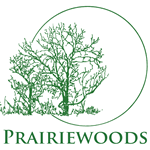“When someone says to us, as Thich Nhat Hanh suggests, ‘Darling, I care about your suffering,’ a deep healing begins.”
―Tara Brach, Radical Acceptance: Embracing Your Life With the Heart of a Buddha
When my three-year-old son tested positive for Covid-19, I felt strongly that I couldn’t panic, or fret, or wring my hands. He’s a child with an acute ability to sense the energy of the adults around him, and it would have only caused more worry, stress and fear.
While I struggled with my own personal response to the news, my son continued to live life to the fullest, even joyfully (if not a little more depleted of energy and a lot more prone to meltdowns).
In those long and arduous weeks of quarantine, I found myself a fortunate recipient of the kindness of others. Beyond concern, it was the love I felt from others. Feeling the love of those around me undoubtedly played a significant part in the healing that was to come. Being acknowledged in the struggle really did ease the burden and made it possible for me to feel okay being compassionate with myself. In being compassionate with myself, I was able to find more compassion, patience and presence when my child needed it most.
Though the kindnesses of those closest to me played a significant role in healing, it was the surprising messages of compassion and concern from those less close to me that meant more than I could have expected. I was astounded that people would take the time to care. Astounded, and deeply appreciative.
It’s not so much what was said, as much as it was that someone took the time to say it. In a time of struggle, I found myself in wonder of this collective kindness surrounding me. Courageous souls who continue to care for one another are bringing a movement of healing into existence. While we might not always be able to help ease the physical burden of illness, it is possible to ease the spiritual burden that comes along with it.
—Jessica Lien, Prairiewoods development coordinator


